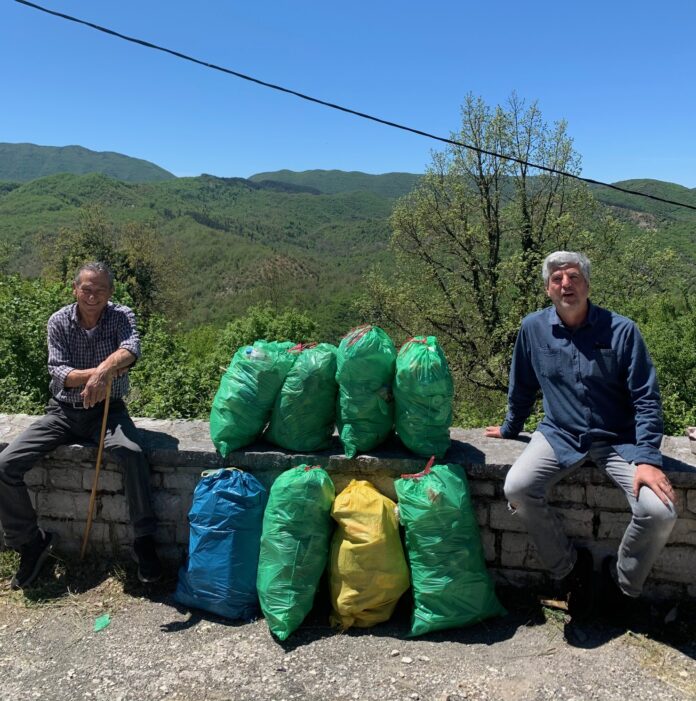The pandemic has taken the life of millions of people, has led others to the ICUs of our hospitals, has created a major economic and social crisis and has certainly changed our way of living and thinking.
I must admit however, that for me and for many other colleagues, and due to the flexibility of the UN, the pandemic has “allowed” me to work from my home country Greece. I’m feeling very grateful for the opportunity I have been given, during these difficult times, to be close to my parents and my Greek family and friends. More proof that our Organization really practices what it preaches.
And here I am writing to you from beautiful Koukouli, a small mountainous village of northern Greece in the Zagori area. Zagori is a group of stone-made traditional villages close to the Vikos-Aoos UNESCO Global Geopark, just 38 km from Ioannina, the capital of the Epirus region.

Although the village could host more than 200 people, as was the case in the 18th and 19th centuries, we are not currently more than 25 permanent or temporary residents. Most of the houses and wonderful mansions are empty waiting for the summertime to be filled with people, families, voices, and children’s games. Looking at the empty houses, streets and central square, I think of the Sustainable Development Goals (SDGs) and especially Goal 11 – making our cities and communities sustainable. How could we give to our empty villages the life they deserve?
Despite the calmness of Koukouli, its internet connection is extremely good, giving me the opportunity to work, participate in digital meetings and do my job exactly the way I would do it from my home or office in Brussels.
There is however a little issue…..
How to fill your free time in Koukouli? Due to the pandemic, the cafes and hotels are closed. Most people do not leave their houses and visitors are few, if any. So, what can you do between working hours and dinner? How will you spend your weekends?
Here is my reply: Trekking; trekking and more trekking.
The best thing to do in this area is to walk around the village, walk from one village to another, discover the ancient stone paths, the springs, the stone-made bridges, the churches, the rivers, the beauty of nature. The deeply rooted culture of this place. And if you are lucky enough you may see, from far away, Ursula, the bear living in the nearby forest. And this is what I do, almost every afternoon with my good friend Kostas (to the left in the photo) who is a trekking veteran of the area.
From our first walk with Kostas, we realized that both sides of the road were littered with plastic bottles and empty cans left there for many, many years.
We both thought that since we go trekking, it would be great to make our long walks useful for the village and the environment.
So, we started collecting the empty plastic bottles, coffee cups, and metallic cans starting with Koukouli and then cleaning the roads and the paths that connect our village with the other Zagori villages.
We can now proudly announce that we have so far collected more than 15 large plastic bags full of litter and will continue doing so, for the benefit of the village, for nature and for our own personal satisfaction. We can give something back to this beautiful place that hosts us. Moreover, our project is excellent physical exercise. In a few words, making the SDGs a reality in Koukouli and beyond is our final goal.
We have called our project “GLITSA” since we are using our glitsas for collecting the empty plastic bottles and cans that are then taken for recycling at a nearby village. Glitsa means the local, traditional shepherd’s crook that is used to catch a sheep in Greek. Since we possess no cattle (for the time being), we are using them to collect the plastic litter.
This is how I’m spending my free time and weekends while teleworking from Koukouli at the time of the pandemic.
Would you like to join me?
Dimitri Fatouros, Communication Officer for Greece and Cyprus

